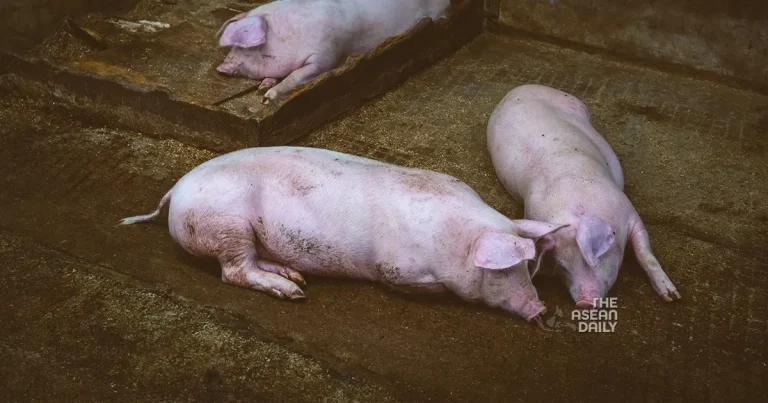7-6-2024 (JAKARTA) The Indonesian farm on Pulau Bulan, which supplies two-thirds of the Republic’s freshly slaughtered pork, has yet to receive the go-ahead to resume exports of live pigs. The exports were halted on April 19, 2023, after Singapore detected the highly contagious and deadly African swine fever in a consignment of pigs from the island, located in the Riau Islands province.
The Singapore Food Agency (SFA) and the Animal and Veterinary Service (AVS), a cluster of the National Parks Board, have informed The Straits Times that they will collaborate with Indonesia’s Directorate-General of Livestock and Animal Health Services to assess if and when live pig imports can resume. In an email response, an SFA spokeswoman clarified that imports can only recommence after SFA and AVS have evaluated and confirmed that the pigs on the farm are free from African swine fever.
“This would be done through evaluation of the farm’s cleaning and disinfection measures, biosecurity measures put in place, (and) surveillance of the pigs restocked on the farm,” the spokeswoman stated. “We will verify these and begin official assessment of the farm for the resumption of exports via documentary assessments and on-site inspections, once the farm has completed re-stocking and put in place the necessary measures.”
The farm’s exports account for a significant 15 percent of Singapore’s total pork supply, underscoring the importance of resolving the issue promptly. The detection of African swine fever in the consignment was the first time the disease had been detected in pigs imported into Singapore, prompting swift action from the authorities.
While the disease does not affect humans, it is highly contagious and fatal to wild boars and pigs. Since its spread to the Asia-Pacific region in 2018, the disease has led to the culling of millions of pigs in an effort to curb its transmission. Singapore’s import conditions for pigs, pork, and pork products are based on scientific principles and align with guidelines and standards set by the World Organisation for Animal Health.
The SFA requires regions exporting raw pork to Singapore to be free from the virus that causes African swine fever, as it can be transmitted through raw meat from infected pigs. However, processed pork products from areas with outbreaks are permitted for import and sale, provided they have undergone heat treatment to inactivate the virus.
While the Indonesian farm remains on hold, Singapore continues to import pork from over 20 sources, including live pigs from Sarawak in East Malaysia, as well as chilled or frozen pork from Australia, Brazil, and other countries. The SFA is actively working with the industry to diversify import sources, having recently approved six suppliers from Mexico to export pork to Singapore in 2023.




